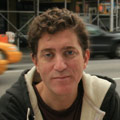非常抱歉,
你要访问的页面不存在,
非常抱歉,
你要访问的页面不存在,
非常抱歉,
你要访问的页面不存在,
验证码:

职称:professor
所属学校:Princeton University
所属院系:Department of Sociology
所属专业:Sociology
联系方式:805-705-1010
I tend to choose my ethnographic projects with an eye to revealing both the common and distinctive elements of humanity. Most people have common bases of life, and many who are presumed to be quite different have some salient “moral” characteristics in common. Slim’s Table was an effort to document commonalities between an invisible inner city black working poor and mainstream society. Sidewalk tried to disentangle what is common and what is distinctive about unhoused black men on the streets, accounting for the distinctions and similarities in light of history, situation, and structure. These and other urban ethnographic projects have pivotal agendas that are both scientific and political: to systematically study the lives of the urban poor in a period of U.S. history characterized by a strong current of ideological and cultural dehumanization of marginalized social groups. In such an era, it is important to account for difference and to reaffirm elements of commonality in accordance with the highest standards of evidence. To do so rigorously is both a scientific enterprise and a political project.
I tend to choose my ethnographic projects with an eye to revealing both the common and distinctive elements of humanity. Most people have common bases of life, and many who are presumed to be quite different have some salient “moral” characteristics in common. Slim’s Table was an effort to document commonalities between an invisible inner city black working poor and mainstream society. Sidewalk tried to disentangle what is common and what is distinctive about unhoused black men on the streets, accounting for the distinctions and similarities in light of history, situation, and structure. These and other urban ethnographic projects have pivotal agendas that are both scientific and political: to systematically study the lives of the urban poor in a period of U.S. history characterized by a strong current of ideological and cultural dehumanization of marginalized social groups. In such an era, it is important to account for difference and to reaffirm elements of commonality in accordance with the highest standards of evidence. To do so rigorously is both a scientific enterprise and a political project.